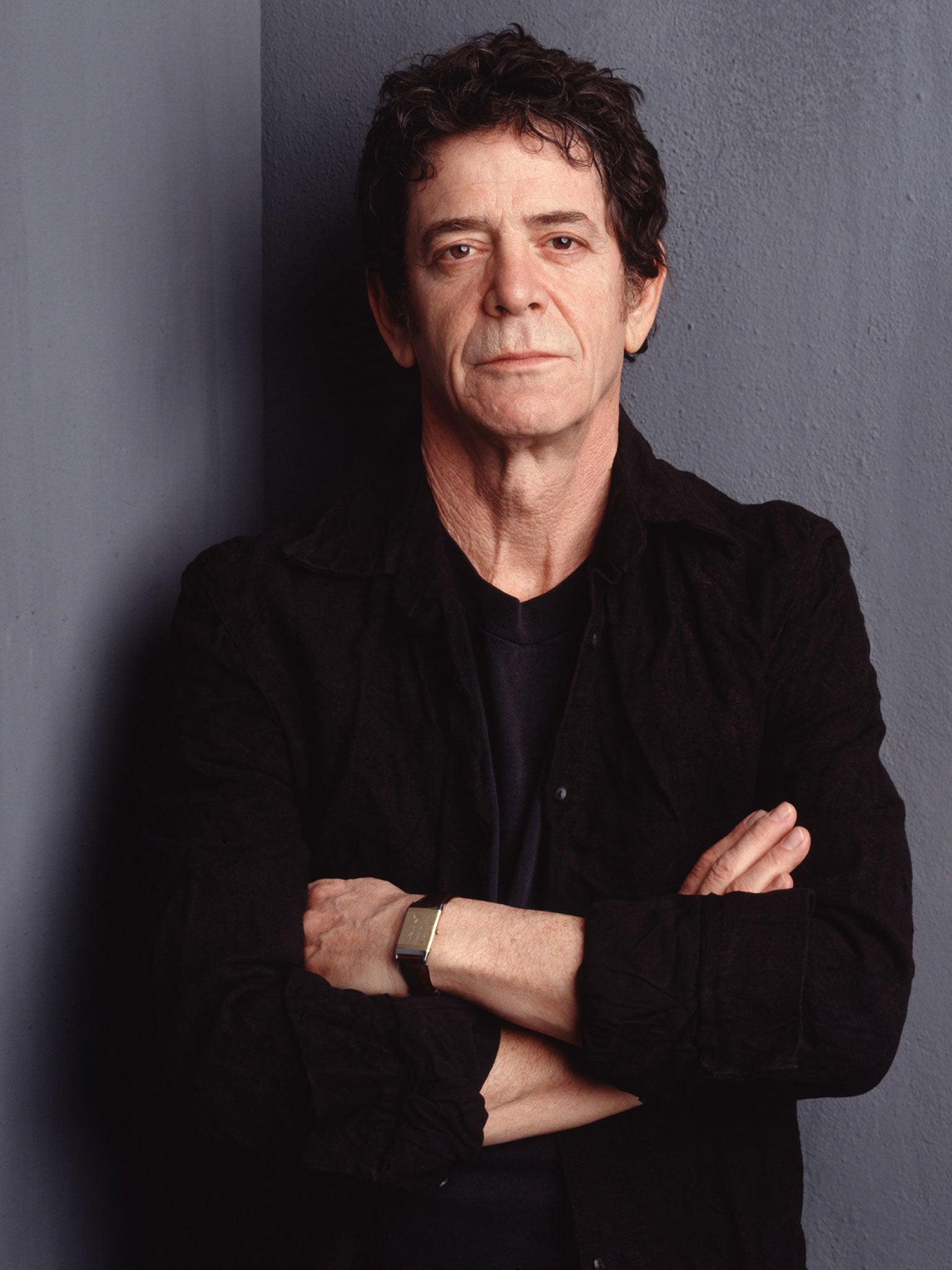Lou Reed: A frontline member of rock’s ‘Awkward Squad’ whose influence spread far wider than his sales

Your support helps us to tell the story
From reproductive rights to climate change to Big Tech, The Independent is on the ground when the story is developing. Whether it's investigating the financials of Elon Musk's pro-Trump PAC or producing our latest documentary, 'The A Word', which shines a light on the American women fighting for reproductive rights, we know how important it is to parse out the facts from the messaging.
At such a critical moment in US history, we need reporters on the ground. Your donation allows us to keep sending journalists to speak to both sides of the story.
The Independent is trusted by Americans across the entire political spectrum. And unlike many other quality news outlets, we choose not to lock Americans out of our reporting and analysis with paywalls. We believe quality journalism should be available to everyone, paid for by those who can afford it.
Your support makes all the difference.Lou Reed was, in no apparent order, a hugely influential singer, songwriter and musician whose impact on both rock’s scope of subject matter and its sonic palette was far greater than his sales figures would ever suggest; a frontline member of rock’s ‘Awkward Squad’ who delighted in giving interviewers as hard a time as humanly possible, and an iconic presence whose side-of-the-mouth deadpan drawl and impenetrable shades provided several generations of punk-rockers with one of their most archetypal posing templates.
Born Lewis Allan Reed to a highly respectable Long Island Jewish family in 1942, he channelled his early obsessions with rock and roll, free jazz, hardboiled literature, poetry and journalism into his songwriting for his band The Velvet Underground, a radical fusion of shambolic garage rock and avant-garde concert music. Despite sponsorship from Andy Warhol, the album sold spectacularly poorly but nevertheless attracted admirers like Brian Epstein, who played the Velvets’ first album at his salons and which intrigued The Beatles, particularly John Lennon. Unfortunately, Epstein died before he could finalise his plans to bring the band to England.
Reed’s family had been so horrified at their son’s bisexuality that they sectioned him and subjected him to electro-convulsive therapy in an attempt to ‘cure’ him. Instead, the street-life of hustling and intravenous drug use he explored inspired many of his key early songs, like I’m Waiting For The Man, Venus In Furs and White Light White Heat.
It was another British admirer, David Bowie, who propelled him into the mainstream in the early ’70s, performing his songs, recording his own tribute piece Queen Bitch and producing the 1972 album Transformer, which gave Reed his only mainstream pop hits Walk On The Wild Side and Perfect Day.
Despite a limited vocal range which made Bob Dylan (the singer whose style Reed’s most resembled) sound like Caruso and oft-quoted wisecracks like "One chord is fine. Two chords are pushing it. Three chords and you're into jazz”, Reed was a craftsman. He prided himself on his encyclopaedic knowledge of guitar, amplifier and recording technology, and his snarky, streetwise, Chandleresque lyrics were polished to within an inch of their lives.
Despite occasional collaborations with the likes of Kiss and Metallica, he made few attempts to reach out to a mass audience: he played to a core crowd who would follow him almost anywhere (though the feedback double-album Metal Machine Music did indeed try their patience) and sustain him in a modest but comfortable lifestyle.
His drug consumption in the ’60s and ’70s — mainly heroin, amphetamines and alcohol — was legendary, but for the last couple of decades of his life he was seriously clean: vegetarian, almost teetotal and a devotee of Tai Chi and Martial Arts. However, he needed to undergo a liver transplant earlier this year, and despite a post-surgery statement that he was ‘bigger and stronger than ever’, clearly his past excesses had caught up with him.
By all accounts, Lou Reed was capable of being quite staggeringly unpleasant and took pleasure in being so, but none of that matters now. Many artists who have outsold him a thousandfold will dream in vain of affecting the music a thousandth as much. The music and its attendant culture would be immeasurably poorer without him. As Brian Eno used to say: hardly anybody bought the Velvet Underground’s records, but almost everybody who did went on to form a band.
Join our commenting forum
Join thought-provoking conversations, follow other Independent readers and see their replies
Comments